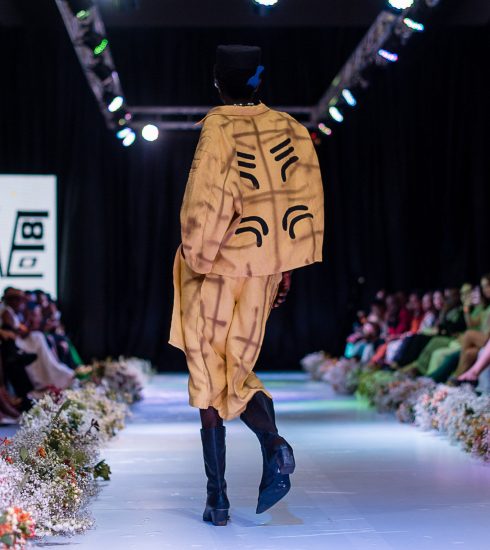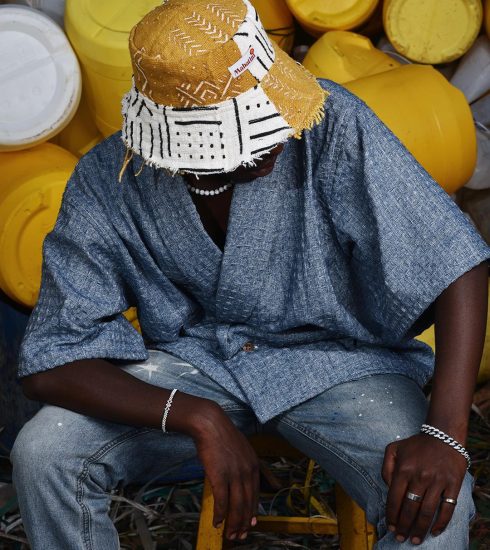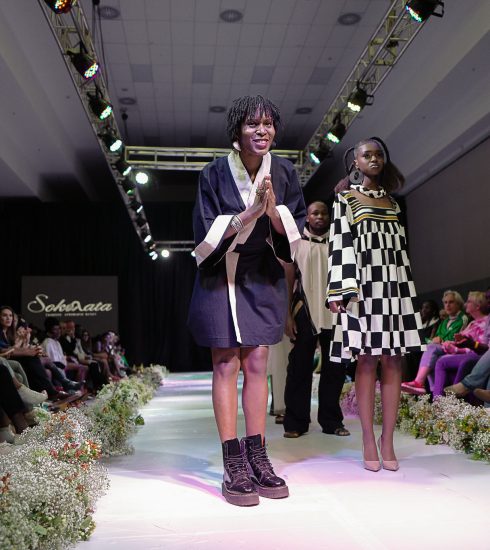- Fesheni Africa
- June 3, 2025
At AfroWema, our sustainability approach is deeply rooted in social impact and material responsibility. We lean strongly toward ethical fashion and circularity.
Our collections are crafted using upcycled materials like denim sourced from Kibera’s deadstock and pre-loved pieces, combined with handwoven cotton and traditional African fabrics. We collaborate directly with artisans in Kibera, ensuring fair pay and dignified working conditions while preserving traditional skills. Every AfroWema piece is a bridge between sustainable craftsmanship and cultural storytelling.
How would you describe sustainability in your own words according to your brand ethos?
To us, sustainability means honoring people, planet, and culture. It’s about creating beauty without harm — to the environment, to the people making our garments, or to the cultural heritage we draw from. Our ethos is: empower the makers, respect the Earth, and celebrate African excellence.
Are there any future plans your company is having to become even more sustainable?
Absolutely. We’re currently expanding our Sustainable Fashion 4Kids program to instill environmental and ethical awareness in the next generation. We’re also investing in artisan training programs to deepen skill-sharing and improve zero-waste production methods. Our future collections will focus even more on natural dyes and second hand items while scaling up our partnerships with recycling initiatives across Africa.
Were you always a sustainable brand? If not, what are the challenges of transitioning? If so, what was it that made the decision to begin a sustainable fashion brand?
AfroWema was founded with sustainability at its core. My journey began in Kibera, where I witnessed the incredible creativity and resilience of artisans working with limited resources. From the start, I saw fashion not just as an art form, but as a tool for community empowerment and environmental restoration. The challenge has always been balancing sustainability with scalability — it takes time, care, and often more investment to do things right. But we believe the impact is worth it.
Is sustainable fashion a sustainable business? Why? How can the environment be improved?
Yes — but only if we redefine what “success” means in fashion. Sustainable fashion can be a sustainable business when consumers, investors, and institutions value purpose as much as profit. Brands like ours may not mass-produce or sell cheap, but we build lasting relationships with conscious consumers, and we grow with integrity. To improve the environment, we must invest in local production, ban greenwashing, and prioritize circular systems from education to policy level.
Are there any particular policies governing the sector that you believe help make sustainability more accessible? Are there any policies that you believe hinder progress in sustainability?
Policies promoting local textile industries, import duty exemptions for sustainable materials, and investment in artisan training can accelerate progress. Unfortunately, in many African countries, lack of regulation around textile waste and second-hand imports undermines local designers. There’s also insufficient support for small sustainable brands. We need frameworks that recognize and fund community-driven solutions — those are the true engines of sustainable development.






